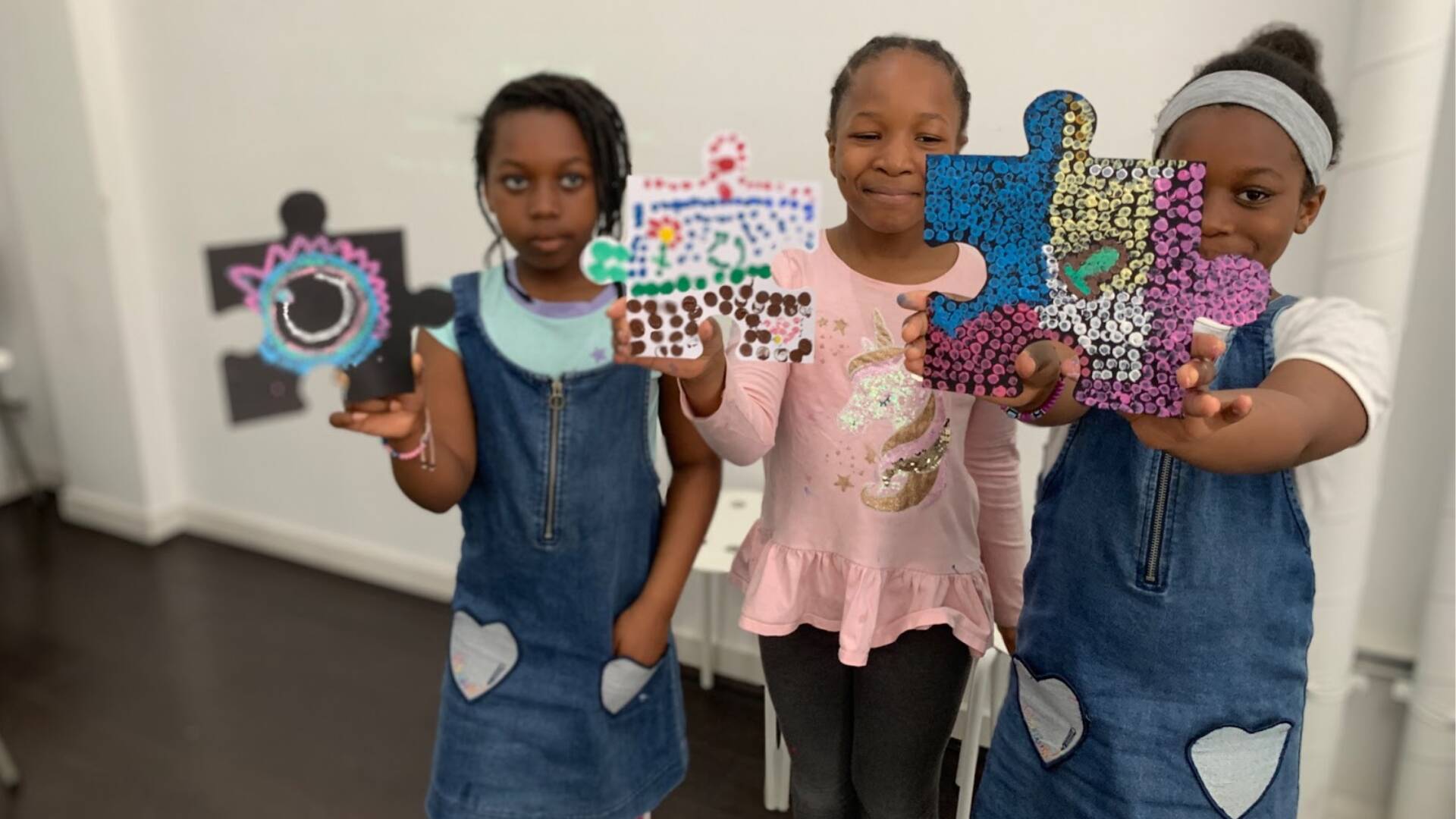
26.06.24

Self-described observer, dreamer and passionate scribbler Wuraola Young, joined these workshops. Across five blogs, Wuraola shares her experience, what she has gained from participating in CULTIVATE, and how her understanding of the climate crisis has developed through creativity and community.
It’s fascinating, isn’t it? If we just paid attention, we’d be gobsmacked about how amazing our world is. I allow myself to be surprised by the little everyday things. Like just this past week as I dashed for the bus to work, I couldn’t help but notice that the moon was full and hung high up in the sky like a beautiful pendant.
Exactly a month before, I’d noticed the same full moon as I got off the bus to work. On both occasions, aside from my gawking, I stopped to take photos. My mobile is full of photos of sunrises, sunsets, and hills that seem to take on different characters every day of the week depending on the kaleidoscope of the sky.
I’ve got photos of hedges, trees, flowers in full bloom, or trees ‘stark naked’ against a background of beautiful blue sky. It never ceases to surprise me that the view from the same spot is never the same day to day. Talk about refreshing.
Today’s ‘viewing’ was of birds.
I’m not much of a bird watcher but today I noticed how the smaller birds are faster than the bigger birds. Their wings flutter like crazy and it looks as if they are in a hot rush to get somewhere. The bigger ones are more fluid in their movement; they do a few flaps then glide, a few gentle flaps again, glide.
“Are birds herbivores, omnivores or carnivores?” I wondered.
My mind drifted to the lessons on ecosystems I’d had in school what seemed like a lifetime ago. Everything in nature is part of a circle that keeps going, looping – the sun, plants, animals, micro-organisms. The little birds flocking across my horizon today were on a mission to do their bit for the ecosystem I’m sure, just like the bigger ones too.
We humans, are also part of this intelligent system that keeps the circle of life revolving and our earth healthy for all organisms to thrive. Sadly, it looks like right now we are the weakest link.
With our excess consumption of both what’s necessary and what’s not, our (mostly) irresponsible ways of disposing off stuff when we are done with it or opting to replace something that’s out of season or broken instead of fixing it.
My first time learning about the circular economy was at another of our Climate Change workshops. Just like the intelligence of nature keeps things going in a loop, the circular economy also proposes that we keep the usefulness of things by creating a never-ending cycle of using, reusing, and recycling.
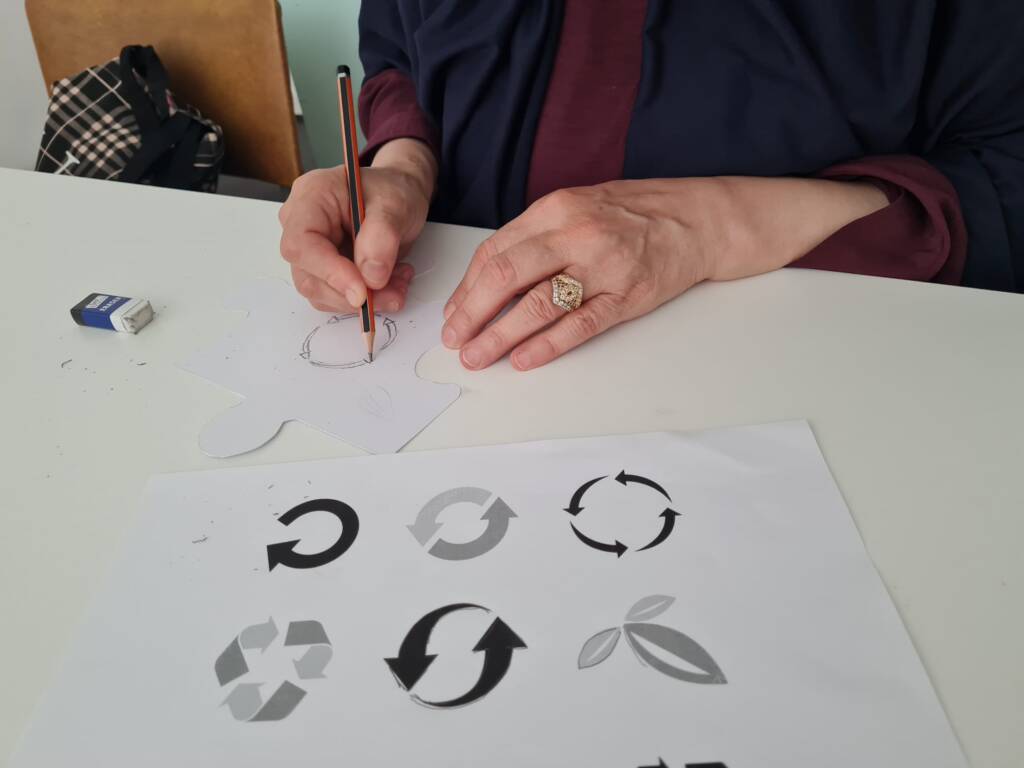
We collectively acknowledged on the one hand that we are guilty of buying things we don’t need. Sometimes we replace things only because we ‘feel like it’ and throw out the old.
On the other hand, many of us were also frustrated about the fact that it’s more expensive to fix something broken than to buy a new one. A memorable story by one of us was about an expensive and durable roller hand luggage she’d bought. The wheels became wonky, and when she sought to have it fixed, she was charged more than the cost of buying a whole new bag! It may seem that one roller bag replacement shouldn’t cause us to go up in arms but consider how many different things we use that we don’t have a choice but to replace rather than fix when it breaks.
In my home country Nigeria, admittedly this may be more from a purchasing power standpoint. We routinely mend broken shoe straps, zippers of dresses, trousers, school bags, handbags and of course luggage. There are technicians who can give your mobile phone, TV set, electric kettles, cookers, washing machines, air conditioning units, and more a new lease of life.
There’s one thing we do though that no ‘fixer’ can fix. And that’s shopping. Excessive shopping. It was from my kids I heard the term ‘fast fashion’.
Fast fashion like fast food is quick, ‘cheaper’ production but with the intent for a replacement sooner than necessary. I learned from my kids that those sucked into this lifestyle literally wear some items once and discard them. Because of the impression of affordability, people change their wardrobe a few times a year!
In a way, I sympathise with the shopaholics, because I understand that any habit of this nature, besides being fed by capitalist manufacturers and advertisers, is also chasing a mirage that will never be reached. As the saying goes: “You can never have enough of what you don’t need.”
This session made a lot of things come together for me. Just as the recycle symbols are variations of two or three arrows in a circle (depicting Reduce, Reuse, Recycle), that’s the same way the ecosystem and the idea of the circular economy work.
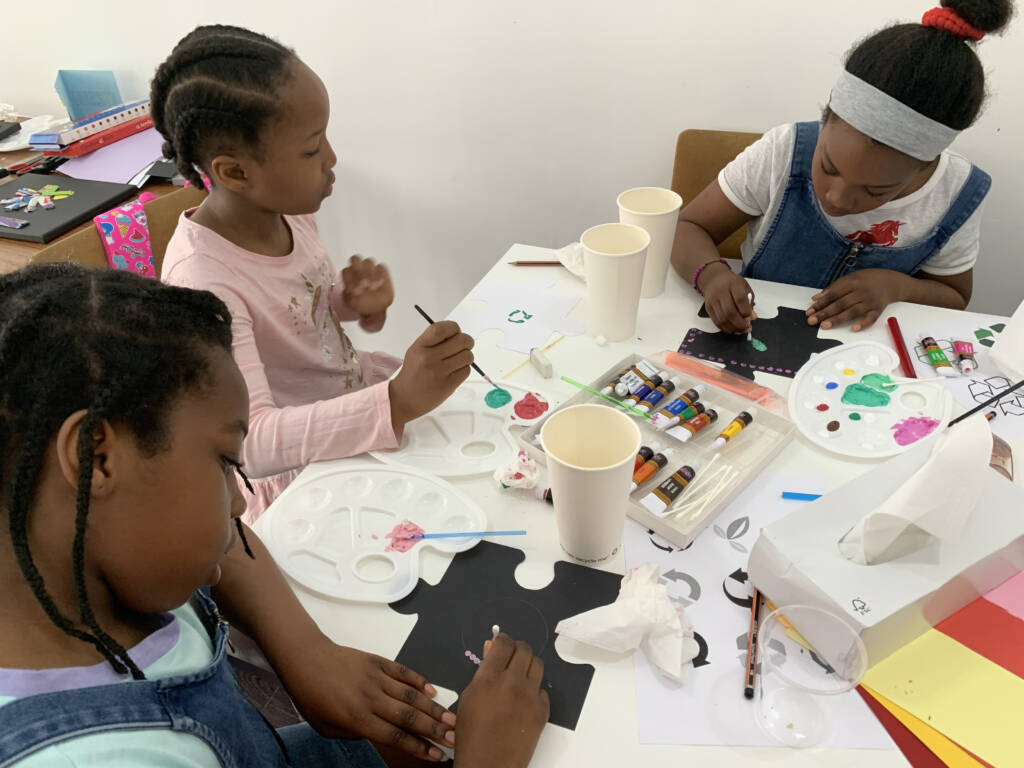
For us to strengthen our link in the ecosystem we need to start by reducing what we buy, re-using what we have, and recycling what we have no use for anymore.
Our creation at the workshop today was dot art – a very therapeutic exercise I highly recommend. It’s a classic example of slow living, bringing mindfulness to bear, slowing down, paying attention. You can’t help but be attuned when creating with dot art. The precision needed to put one dot after another following the outline you created demands your attention.
Each of us chose one of the different recycle symbols, outlined it on a piece of cardboard, and proceeded to design the outline with tens of dots.
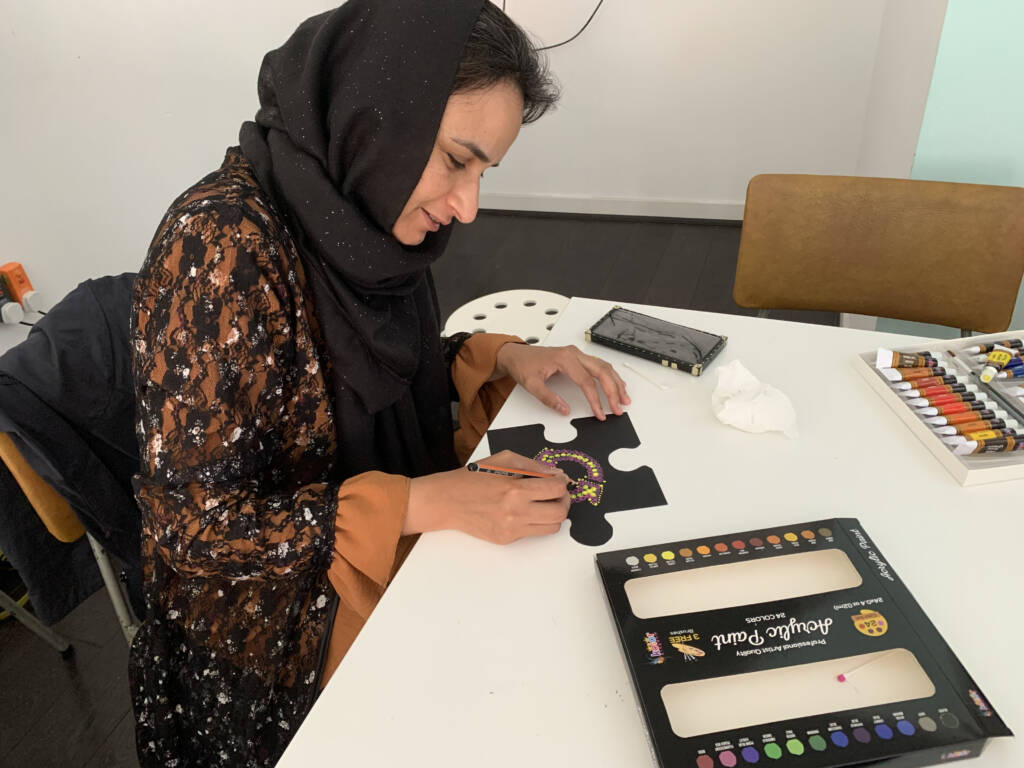
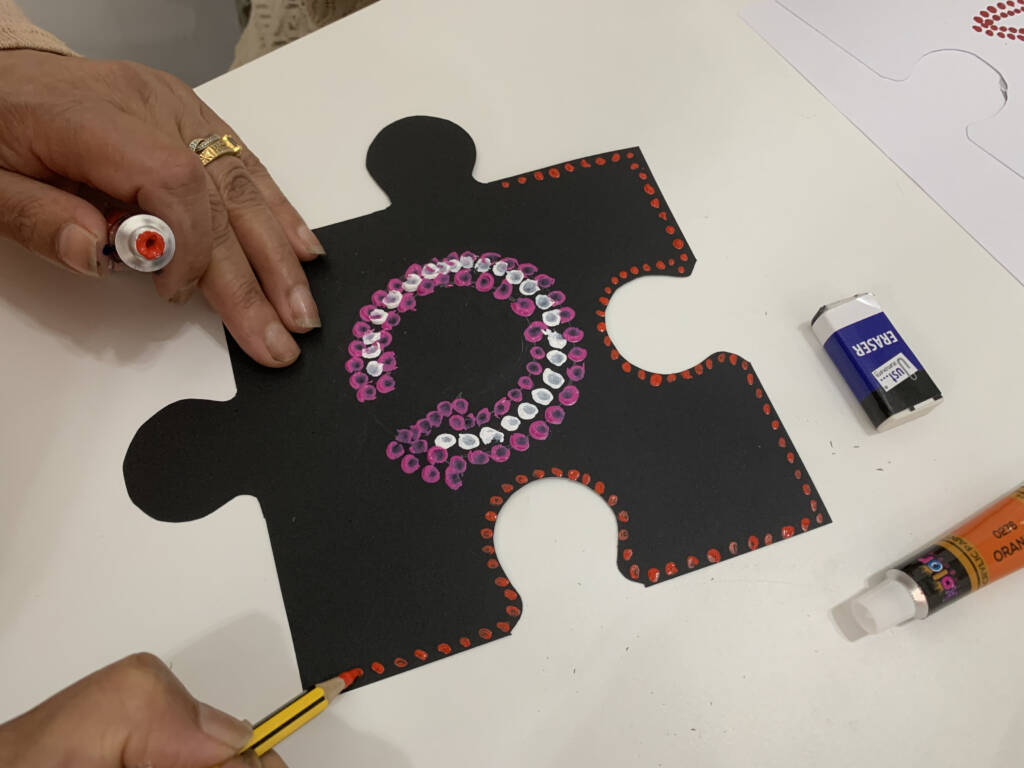
The result for each of us was so beautiful, an expression of our individuality. It’s a testament to the truth that our lives can be so much more wholesome, fulfilling, and amazing if we could just slow down.
Slow down. Slow down and decide the ‘template’ for your life. Slow down and choose the dots that will connect and create the template. Slow down and pay attention to the trends you follow. Slow down and remove yourself from a race to nowhere. Slow down and notice the part you play in keeping our earth healthy (or not). Slow down and smell the coffee.
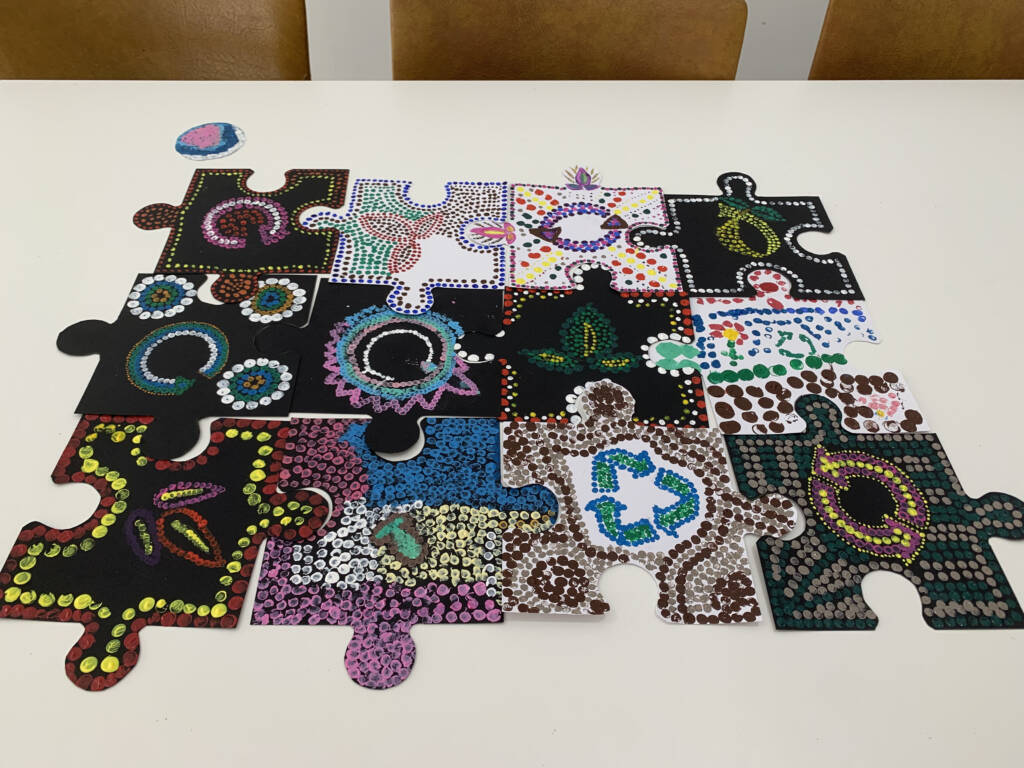
Our earth is not flat, it’s a revolving rock hurling itself through space. As one person living on it with over six billion other humans and gazillion plants and animals, it may seem that we are a teeny-weeny insignificant piece of the equation but consider this.
If “The flutter of a butterfly in some distant land can cause a chain reaction that leads to a tsunami in another part of the world”, then you can be certain that there’s no waste in nature. We are all a significant part of what makes the world go round – pun intended.
We can start today to reduce, reuse, and recycle.
Wuraola Young specializes in helping individuals achieve their most important goals. She has an MSc in Psychology from the University of Dundee, a background in Neuro-Linguistic Programming, and proficiency in Subconscious Remapping. Read more from Wuraola.
CULTIVATE is a Culture Collective leadership programme led by Creative Dundee. The programme works with local creative practitioners to place creativity at the heart of climate justice, developing action with communities across the Tay region. Discover more about CULTIVATE and meet our second cohort of Creative Practitioners.

If you would like to support us in creating even better content, please consider joining or supporting our Amps Community.